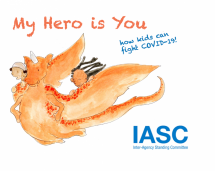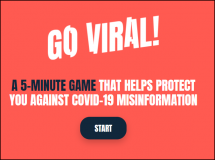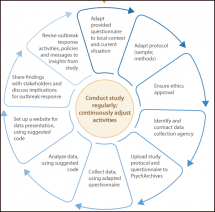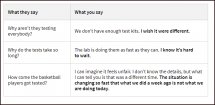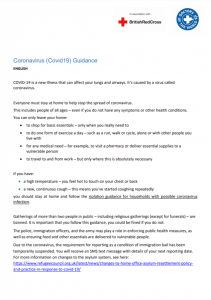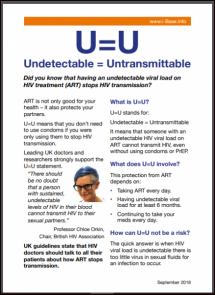My Hero is You, How Kids can Fight COVID-19!
This is a new story book that aims to help children understand and come to terms with COVID-19 has been produced by a collaboration of more than 50 organizations working in the humanitarian sector, including the World Health Organization, the United Nations Children’s Fund, the United Nations High Commissioner for Refugees, the International Federation of Red Cross and Red Crescent Societies and Save the Children.
With the help of a fantasy creature, Ario, “My Hero is You, How kids can fight COVID-19!” explains how children can protect themselves, their families and friends from coronavirus and how to manage difficult emotions when confronted with a new and rapidly changing reality.
The book – aimed primarily at children aged 6-11 years old – is a project of the Inter-Agency Standing Committee Reference Group on Mental Health and Psychosocial Support in Emergency Settings, a unique collaboration of United Nations agencies, national and international nongovernmental organizations and international agencies providing mental health and psychosocial support in emergency settings.
During the early stages of the project, more than 1700 children, parents, caregivers and teachers from around the world shared how they were coping with the COVID-19 pandemic. The input was invaluable to script writer and illustrator Helen Patuck and the project team in making sure that the story and its messages resonated with children from different backgrounds and continents.
In order to reach as many children as possible, the book will be widely translated, with six language versions released today and more than 30 others in the pipeline. It is being released as both an online product and audio book.
Source: WHO, UNICEF, IFRC, UNHCR
Date of Publication: September 30, 2021
SIMILIAR RESOURCES
Tools
Examples
- COVID-Ready Communication Playbook for Health Professionals
- Prevent, Detect, Respond: How Community Health Workers can Help in the Fight against COVID-19
- Safe Ramadan Practices in the Context of the COVID-19: Interim Guidance
- WHO COVID-19 Learning Resources Application
- Coronavirus disease (COVID-19) Advice for the Public
- Coronavirus: Here's How You can Stop Bad Information from Going Viral
- Framework for Reopening Schools
- WHO Tool for Behavioural Insights on COVID-19
- 14 Actions You Can Take Today to Adapt your Program for COVID-19: Recommendations from FP/RH Advisors
- 14 Actions You Can Take to Adapt Your FP/RH Program for COVID-19

